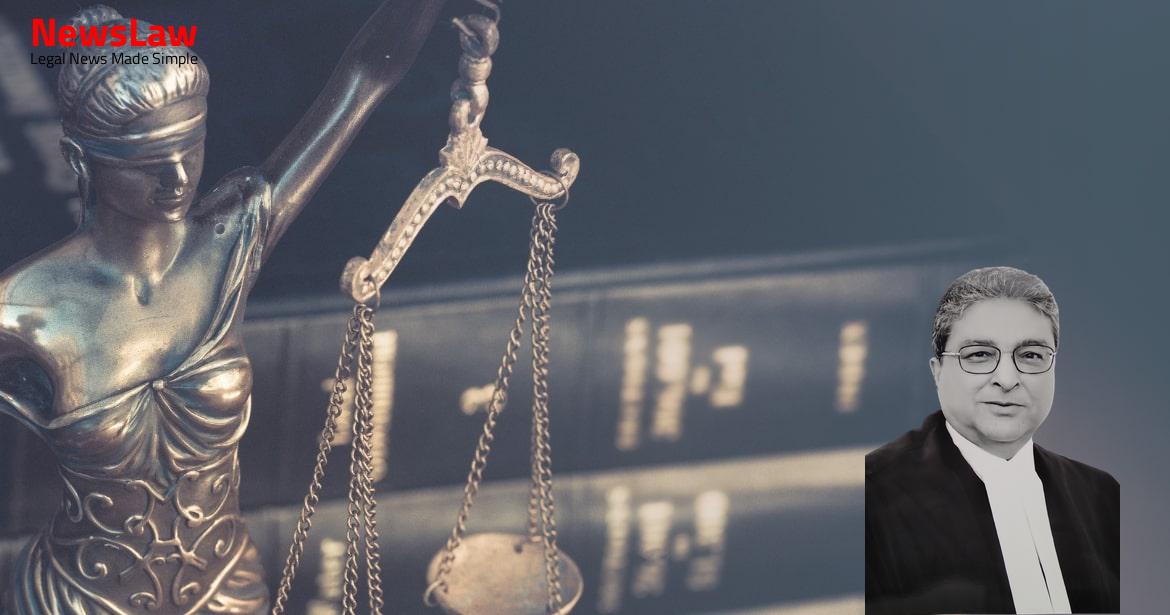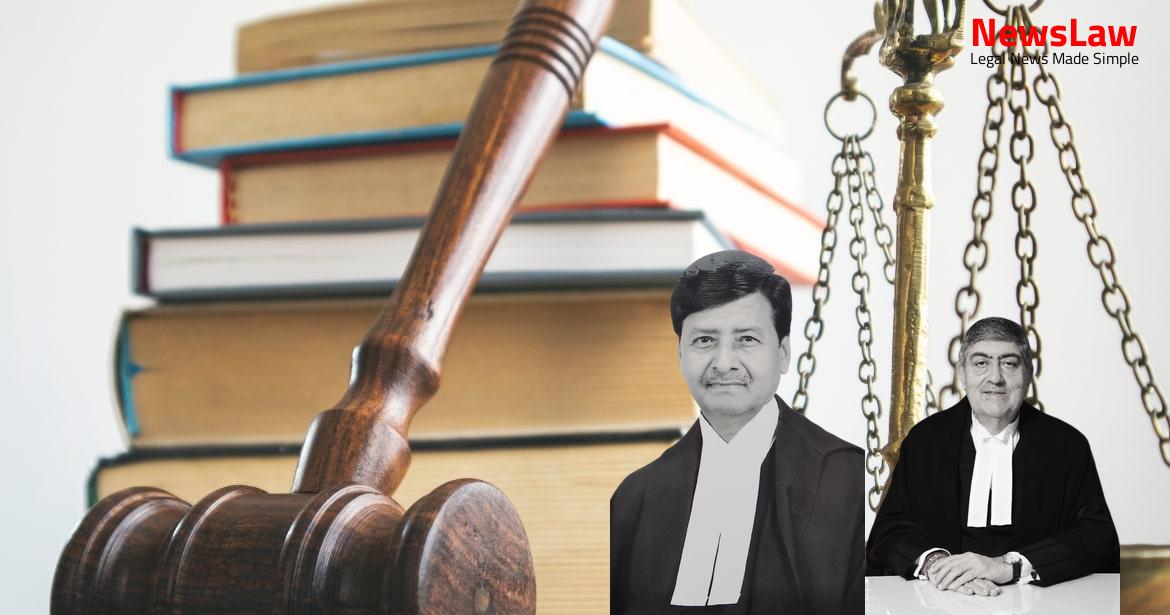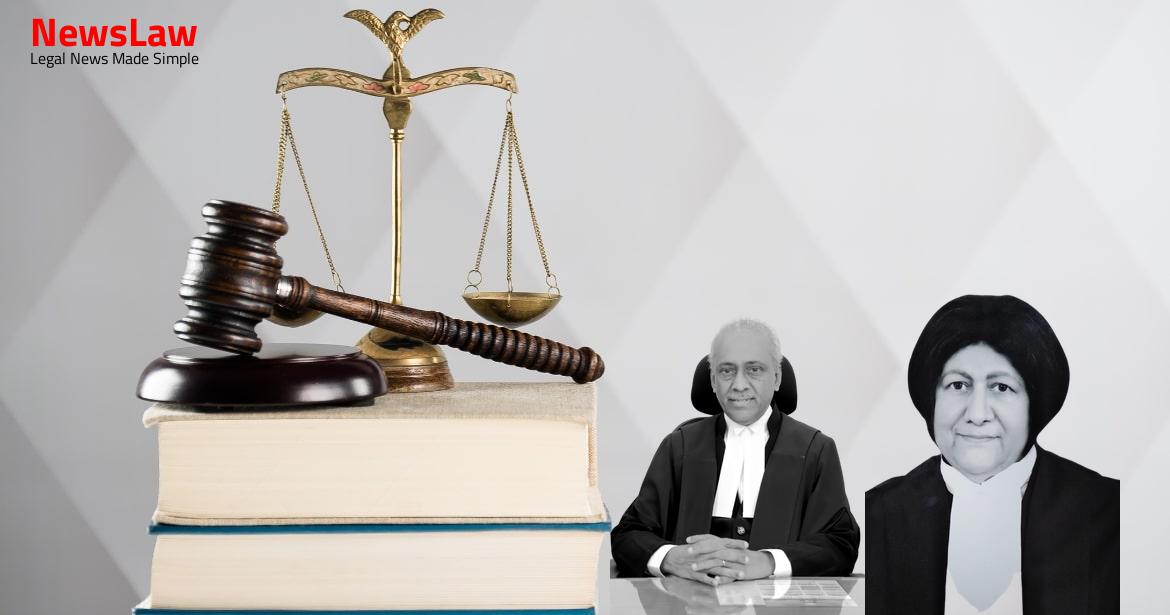In a significant ruling by the Supreme Court of India, the case involving the recognition of trade unions as operational creditors under the Insolvency and Bankruptcy Code has been decided. This landmark judgment will shape the legal landscape for collective representation in insolvency matters. The judgment addresses the rights and standing of trade unions in insolvency proceedings, emphasizing the importance of collective action for workers’ rights.
Facts
- Appellant issued a demand notice on behalf of roughly 3000 workers under Section 8 of the Code for outstanding dues of workers.
- Proceedings were pending under the Sick Industrial Companies (Special Provisions) Act, 1985.
- Respondent replied to the demand notice on 31.03.2017.
- The NCLT referred to all antecedent facts and pending cases in the High Court of Delhi.
- The NCLT confirmed that the trade union does not qualify as an operational creditor.
- As a result, the petition was dismissed by the NCLT.
Also Read: Judgment on Contract Dispute: PSA Mumbai Investments PTE. Ltd. v. Jawaharlal Nehru Port Trust
Issue
- The present appeal questions whether a trade union can be considered an operational creditor under the Insolvency and Bankruptcy Code, 2016.
- The facts of the case detail the repeated closure and reopening of a jute mill until its final permanent closure on 07.03.2014.
Also Read: Landmark Judgment: Abhyudaya Co-operative Bank Ltd. vs. Guravs
Arguments
- The appellant argued that a trade union should be considered an operational creditor under the Insolvency and Bankruptcy Code.
- They referenced provisions of the Code and the Trade Unions Act, along with a Division Bench judgment of the Bombay High Court to support their argument.
- They emphasized that a trade union, as an operational creditor, should be allowed to file an application in a collective capacity.
- The appellant advocated for a purposive interpretation of the Code to include trade unions as operational creditors.
- They highlighted that the application can be made jointly by authorized individuals on behalf of all workmen/employees.
- The respondents supported the NCLAT judgment, stating that trade unions do not provide services to claim dues as debts.
- They argued that each workman’s claim is a separate cause of action, making a collective application by a trade union not maintainable.
- The definitions of operational creditor and operational debt under the Code were referenced in the arguments.
- Rule 6 of the Insolvency and Bankruptcy Rules regarding applications by operational creditors was also discussed in the arguments.
Also Read: Supreme Court Judgment: Review Petition in RPC Aspect Case
Analysis
- A trade union is defined under Section 2(h) of the Trade Unions Act as any combination formed primarily for regulating relations between workmen and employers, workmen and workmen, or employers and employers.
- Trade disputes are defined under Section 2(g) as any disputes connected with the employment, non-employment, terms of employment, or conditions of labor of any person.
- Section 15(c) and (d) of the Code mandates that a trade union can prosecute or defend legal proceedings and conduct trade disputes on behalf of the union or its members.
- The Registrar registers a trade union upon ensuring compliance with all requirements and enters the details in a prescribed register.
- Every registered trade union becomes a body corporate with perpetual succession and the power to acquire and hold property, contract, sue, and be sued.
- A trade union can represent its members in filing a winding up petition under Section 439 of the Companies Act, 1956.
- Trade unions fall under the definition of ‘person’ in Section 3(23) of the Code as entities established under a statute.
- Claims can be made conjointly by trade unions on behalf of their members as recognized in Rule 6, Form 5 of the Insolvency and Bankruptcy (Application to Adjudicating Authority) Rules, 2016.
- Registered trade unions can sue and be sued as a body corporate under Section 13 of the Trade Unions Act.
- The general fund of a trade union, sourced from member contributions, can be used for legal proceedings involving members’ rights against employers.
- A judgment on income tax law regarding the nature of NOIDA authority’s establishment is not applicable to the interpretation of Section 3(23) of the Code.
- Operational debts related to employment claims can be made by authorized persons representing workmen under Section 3(23) of the Code.
- Entities like companies, trusts, partnerships, and limited liability partnerships governed by the Companies Act differ from the interpretation of ‘person’ under Section 3(23) of the Code.
- Individual insolvency petitions by each workman, though burdensome, may be necessary under the Code considering resolution process costs, interim resolution professional fees, etc.
- A registered trade union formed for regulating relations between workmen and employers can maintain a petition as an operational creditor on behalf of its members.
- The procedural aspect should always align with the ultimate goal of serving justice ensuring fairness in legal proceedings.
- In an adversarial system, all parties should have the opportunity to participate in the process of justice dispensation.
- Procedural laws should be interpreted to advance the cause of justice, not hinder it.
- The phrase ‘established under a statute’ has a specific context in legal interpretation.
- Processual laws should serve as aids to justice, not obstacles.
- Judges should have the power to act in the interest of justice where procedural laws might lead to inequitable outcomes.
- The Trade Union Act allows registered trade unions to prosecute or defend legal proceedings to protect their rights or those of their members.
- A trade union can maintain a winding-up petition as per the provisions of the Companies Act and the Trade Unions Act.
- The NCLAT’s refusal to consider whether a trade union qualifies as a ‘person’ under the Code was incorrect.
- Trade unions represent workers collectively and can file joint petitions for dues owed to the workers.
- The NCLAT’s assertion that a trade union cannot be an operational creditor due to not providing services to the corporate debtor was unfounded.
Decision
- The matter is remanded to the NCLAT for deciding the appeal on merits.
- The NCLAT is instructed to expedite the process as the matter has been pending for a long time.
- The appeal is allowed as per the decision.
Case Title: JK JUTE MILL MAZDOOR MORCHA Vs. JUGGILAL KAMLAPAT JUTE MILLS COMPANY LTD. THR. ITS DIRECTOR
Case Number: C.A. No.-020978 / 2017



